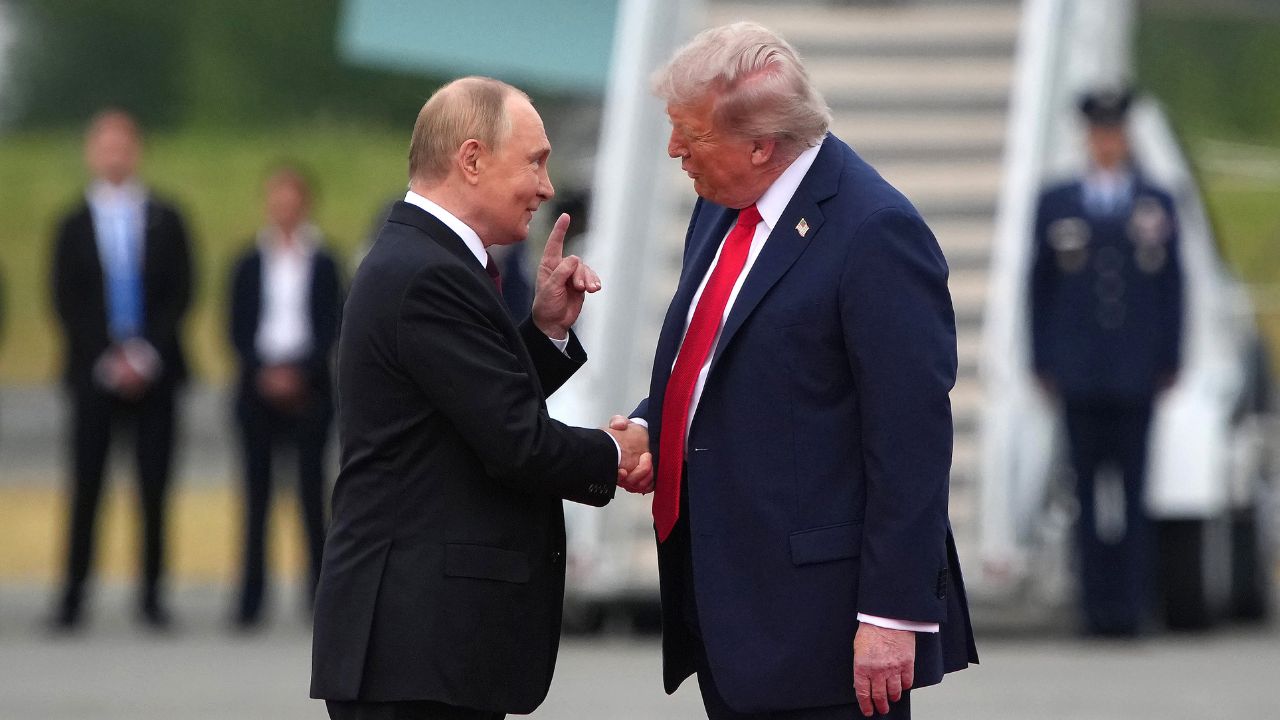Russian Prez Putin Briefs Global Leaders on Alaska Talks With Trump as Ukraine Peace Push Gains Momentum in Washington
Russian President Vladimir Putin has embarked on an intensive round of telephone diplomacy following his high-stakes meeting with U.S. President Donald Trump in Anchorage, Alaska, briefing leaders across Asia, Africa, and Latin America on the summit’s outcome and on prospects for ending the war in Ukraine.
 |
| Image Source: White House |
The calls, made over the weekend, were aimed at consolidating support for Russia’s narrative of a constructive dialogue with Washington while highlighting Moscow’s willingness to pursue a negotiated settlement.
In India’s case, the Kremlin said both leaders “discussed the prospects for a long-term settlement of the crisis in Ukraine and agreed to continue dialogue on this issue, as well as on other relevant international topics.” Modi, thanking Putin for sharing his impressions of the Anchorage meeting, reiterated New Delhi’s consistent position in favor of diplomacy.
“India has consistently called for a peaceful settlement of the conflict in Ukraine and supports all efforts in this direction. I look forward to continuing our exchange of views in the coming days,” he said.
Brazil, a co-sponsor with China of the “Group of Friends of Peace in Ukraine” initiative, was also brought into the loop. The Brazilian presidency noted that during a thirty-minute call, Putin described his talks with Trump as “positive,” while Lula emphasized that the information would aid Brazil’s engagement with the peace group. Russia, for its part, recognized Brazil’s efforts to play a mediating role in the conflict.
In Central Asia, Kyrgyzstan and Tajikistan underscored the regional implications of the Anchorage dialogue. Kyrgyz President Sadir Japarov expressed confidence that “the achieved level of cooperation between the Russian Federation and the United States creates additional conditions for finding a peaceful solution to the Ukrainian crisis.”
Tajik leader Emomali Rahmon praised the significance of direct U.S.-Russia talks for global stability and also discussed preparations for Putin’s upcoming state visit to Dushanbe, as well as regional summits under the Russia–Central Asia and Commonwealth of Independent States (CIS) formats.
In Africa, Putin secured the backing of South African President Cyril Ramaphosa, with both sides reaffirming their commitment to strengthening a “comprehensive strategic partnership” and to coordinating closely in international forums. Pretoria reiterated its support for diplomatic efforts to resolve the conflict.
The outreach underscores Moscow’s strategy of mobilizing political backing from across the Global South, even as its war in Ukraine grinds on into a fourth year.
The calls came just as Trump, who is positioning himself as the architect of a peace settlement, told reporters at the White House that there was now “a possibility that something will come of” his Anchorage meeting with Putin.
At a subsequent Oval Office session with Ukrainian President Volodymyr Zelensky and visiting European leaders, Trump went further, suggesting that the coming fortnight will prove decisive.
“In a certain period of time, not very far from now, a week or two weeks, we’re going to know whether or not we’re going to solve this or is this horrible fighting going to continue. We’ll do the best to get it ended,” he said.
Trump has insisted that both Moscow and Kyiv are “willing parties” that want a deal, though Zelensky and European allies remain wary of any settlement that involves territorial concessions to Russia.
On Monday, as Zelensky pressed for stronger sanctions should trilateral talks fail to materialize, Trump sought to reassure that any eventual peace would be designed to last “long-term” rather than collapse into renewed fighting.
European leaders -- including German Chancellor Friedrich Merz, French President Emmanuel Macron, Italian Prime Minister Giorgia Meloni, British Prime Minister Keir Starmer, NATO Secretary General Mark Rutte, and European Commission President Ursula von der Leyen -- flew into Washington to align positions and demonstrate collective support for Kyiv. Their joint presence at the White House, after being excluded from the Trump–Putin Alaska summit, marked a rare display of European unity and urgency.
Air raid sirens sounded in Kyiv as the Washington meetings were underway, with Zelensky accusing Moscow of “cynical” strikes timed to coincide with the talks. Analysts say the attacks underscored both the risks and the stakes of the ongoing diplomacy.
For Putin, the outreach to leaders across India, Africa, Latin America, and Central Asia serves multiple purposes: it projects Russia as a responsible actor willing to negotiate, strengthens ties with strategic partners in the Global South, and provides a counterweight to Western narratives of isolation.
For Trump, who has framed the Ukraine war as “Sleepy Joe Biden’s war, not mine,” the flurry of diplomacy offers an opportunity to deliver a high-profile foreign policy breakthrough as he seeks to consolidate his second-term presidency.
“We’re not talking about a two-year peace and then we end up in this mess again,” he told reporters. “We’re going to make sure that if there’s peace, that peace is going to stay long-term.”
Whether such promises can overcome the entrenched red lines on both sides -- Russia’s insistence on recognition of its territorial gains, and Ukraine’s refusal to cede land or NATO aspirations -- remains to be seen. As one European diplomat put it in Washington: “We are closer to a potential deal than we have been in years, but also closer to an open split over what that deal would mean.”
Within the next two weeks, as Trump has suggested, the world may learn whether Anchorage marked the start of a genuine peace process -- or just another fleeting diplomatic gesture.
